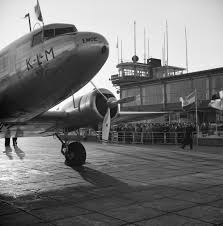The Role of KLM in Sustainable Aviation Practices

Introduction
KLM Royal Dutch Airlines, a major player in the international aviation industry, has been at the forefront of sustainable travel initiatives. As environmental concerns become increasingly pressing, the relevance of airlines like KLM in implementing eco-friendly practices cannot be overstated. In a recent surge of interest surrounding climate change, KLM has positioned itself as a pioneer in sustainability among airlines, making it a point of interest for travellers and industry experts alike.
Current Initiatives by KLM
KLM’s commitment to sustainability is evident through several initiatives launched in recent years. One of the airline’s key programmes is its fleet renewal strategy. The airline is phasing out older, less efficient aircraft and introducing new models that significantly reduce carbon emissions. According to KLM, the new aircraft can lead to fuel savings of up to 20% compared to the older generations.
In addition to modernising its fleet, KLM has also embraced the use of sustainable aviation fuel (SAF). In October 2023, the airline announced a partnership with several biofuel producers for the gradual integration of SAF into their operations. This strategic move aims to achieve a 15% reduction in carbon emissions by 2030, aligning with its broader climate goals.
Recent Developments
Recently, KLM has also adopted measures to enhance passenger experiences while ensuring sustainability. In March 2023, KLM initiated a programme that allows passengers to voluntarily offset the carbon footprint of their flights by contributing to various environmental projects. This initiative has gained traction, with a significant percentage of passengers opting into the programme, thereby indicating a growing awareness of environmental responsibilities among travellers.
Conclusion
The role of KLM in promoting sustainability within the aviation sector underscores the airline’s commitment to reducing its environmental impact. As more travellers become conscious of their carbon footprints, KLM’s proactive approach in integrating sustainable practices is likely to set a benchmark for the industry. The airline’s realignment towards eco-friendliness not only enhances its image but also serves as an essential reminder that the future of air travel must coexist with environmental stewardship. As KLM continues to innovate and lead, other airlines may well be inspired to adopt similar practices, making sustainability a standard in air travel.








